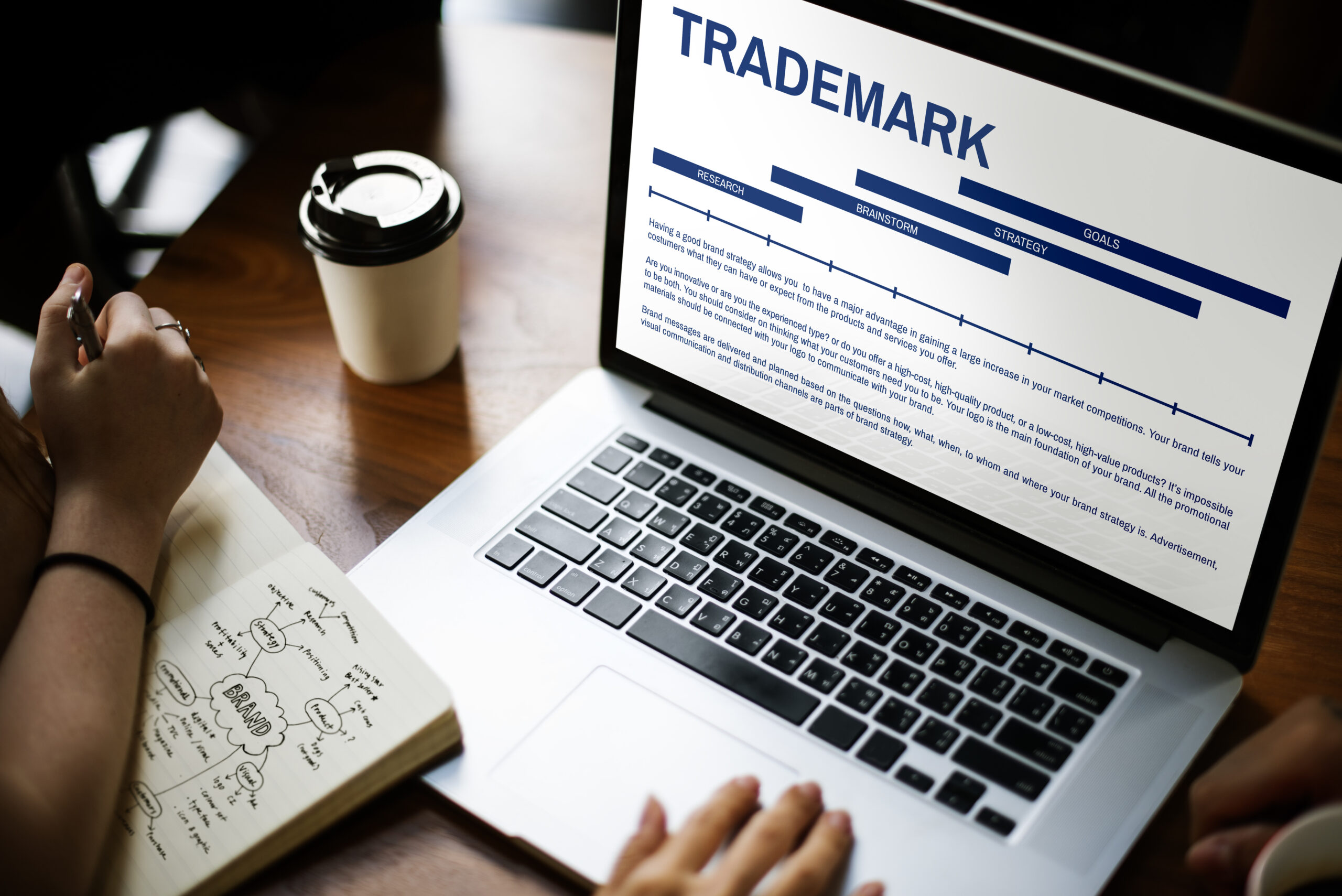About Trademark Registration in India
Trademark registration is the legal process of securing exclusive rights to a unique symbol, word, phrase, design, or combination thereof, distinguishing one's goods or services. This protection prevents unauthorized use or infringement by others, establishing brand identity and customer trust. Registered trademarks enable legal action against infringers and safeguard intellectual property, preserving brand distinctiveness in the marketplace. With trademark registration, businesses assert ownership, prevent confusion, and maintain brand integrity, crucial for success in competitive markets.

The procedure for trademark registration is a multi-step process designed to ensure the uniqueness of the mark and grant legal protection to its owner. It typically begins with conducting a comprehensive search to verify that the proposed trademark is not already in use by another party. This search helps avoid potential conflicts and ensures that the trademark is distinctive enough to qualify for registration.
Once a thorough search has been completed, the next step is to prepare and file a trademark application with the relevant trademark office. The application must include specific details about the mark, such as its description, class of goods or services, and any associated colors or logos. Along with the application, the applicant is required to pay the necessary filing fees.
After the application is filed, it undergoes examination by the trademark office to ensure that it meets all legal requirements for registration. This examination includes a review of the mark’s distinctiveness, its similarity to existing trademarks, and its compliance with trademark laws and regulations.
If the application passes the examination stage without any issues, it is published in the official gazette or trademark journal for a specified period, during which third parties have the opportunity to oppose the registration if they believe it infringes upon their existing rights.
If no oppositions are filed within the opposition period or if any oppositions are successfully resolved in favor of the applicant, the trademark is registered, and a registration certificate is issued. This certificate serves as official confirmation of the trademark’s registration and grants the owner exclusive rights to use the mark in connection with the specified goods or services.
Overall, trademark registration is a critical step for businesses seeking to protect their brand identity and prevent others from using their trademarks without permission. It provides legal recourse against infringement and counterfeiting, helping to safeguard the reputation and goodwill associated with the trademark.
Other Registration
Serving to empower, the next step towards ownership.
Key Features & Benefits
Don’t deliver a product, deliver an experience through business registration
Securing Exclusive Rights through Trademark Registration
Trademark registration bestows upon the owner the invaluable privilege of exclusive usage of the mark within the scope of the goods or services it represents. This exclusivity is a fundamental aspect of trademark registration, providing the proprietor with unparalleled control over the mark’s use and dissemination. The primary motivation behind trademark registration lies in the formidable legal remedies it affords against unauthorized usage. By registering a trademark, businesses gain robust protection against infringement, counterfeiting, and unauthorized exploitation of their intellectual property, thereby safeguarding their brand identity and commercial interests.
Establishing Trademark as Valuable Intangible Asset
One significant rationale behind trademark registration is to formalize the trademark as a recognizable intangible asset within the legal framework. By registering a trademark, it becomes more than just a symbol or identifier; it transforms into a tangible representation of the reputation and goodwill associated with the product or service. Trademark registration serves as a repository for the intrinsic value linked to the brand’s reputation, acting as a testament to the brand’s commercial worth and market recognition. This formal recognition of the trademark’s value enhances its status as a valuable asset, providing legal protection and enabling businesses to leverage their brand equity for strategic growth and competitive advantage.
Enhancing Brand Value through Trademarks
Trademark registration plays a crucial role in establishing consistency and reliability in the products and services offered by a business within the marketplace. By adopting a trademark, businesses create a uniform identity that distinguishes their brand from competitors, facilitating easy recognition by customers and prospects. This standardization contributes to the enhancement of brand value, making it effortless for consumers to identify and connect with the company or brand amidst the crowded marketplace. By fostering trust and familiarity, trademarks solidify the brand’s presence and reputation, ultimately strengthening its competitive position and driving business success.
Elevating Brand Recognition and Market Appeal
Trademark registration serves as a cornerstone for ensuring consistency and uniformity in the products and services offered by a business within the marketplace. By adopting a trademark, businesses establish a cohesive identity that sets them apart from competitors, thereby enhancing the perceived value of their brand. This standardized approach cultivates brand recognition and visibility, enabling customers and potential customers to easily identify and differentiate the company or brand amidst the bustling market environment. Through the establishment of trust and familiarity, trademarks elevate the brand’s appeal and prominence in the marketplace, contributing to its overall success and competitiveness.
Transferability of Registered Trademarks versus Common Law Trademarks
Registered trademarks possess the inherent capability for transfer, enabling their assignment to other entities or individuals. In contrast, common law trademarks lack this transferability feature and can only be conveyed alongside the associated business. This distinction arises from the legal status conferred upon registered trademarks, allowing for independent transferability separate from the business entity. Conversely, common law trademarks are inherently intertwined with the business itself, necessitating their transfer alongside the business ownership. Therefore, while registered trademarks can be freely assigned to third parties, common law trademarks remain closely tethered to the business entity and cannot be independently transferred without the accompanying business transfer.
Utilizing the Registered Trademark Symbol
Upon successful registration of a trademark, the owner gains the right to utilize the symbol ®, the letter “R”, or the word “Registered” in connection with the goods and services specified in the registration. This signifies legal recognition and protection of the trademark, allowing the owner to assert their exclusive rights and deter unauthorized use by others. By displaying these symbols or words alongside the trademark, businesses communicate to consumers that the mark is officially registered and enjoys legal protection under trademark laws. This serves to enhance brand credibility, instill consumer confidence, and safeguard against potential infringement or misappropriation of the trademark.
Package
Process of Trademark Registration
Get your brand registered for ultimate protection
01
Trademark Search Process
Before trademark registration, it’s essential to conduct an online search on the trademark portal for identical or similar marks. This step ensures the mark’s availability and helps prevent potential conflicts. Conducting a thorough search is crucial for securing the desired trademark.
02
Trademark Application Process
To initiate trademark registration, an application is submitted specifying the goods or services associated with the mark’s current or intended use. The appropriate trademark class is determined based on the applicant’s business activities, ensuring accurate classification before filing.
03
Trademark Examination Process
Following trademark application submission, the trademarks office examines it within two to four months. Objections may be raised based on absolute (uniqueness) or relative (similarity) grounds. If no objections arise, the mark proceeds to advertisement. This examination ensures adherence to trademark registration requirements.
04
Handling Examination Report Response
Upon receiving an examination report from the department, a response must be submitted within one month. Failure to respond leads to trademark abandonment. If the reply is satisfactory, the application proceeds to trademark journal advertisement. Otherwise, a show cause hearing is scheduled for further discussion.
05
Publication of Approved Trademark
Following examination, upon examiner satisfaction with the response, the application is approved for publication in the trademarks journal. This weekly journal is accessible on the official website, showcasing authorized trademarks. Advertisement in the journal marks a milestone in the trademark registration procedure.
06
Opposition Period in Trademark Process
Following advertisement, the trademark remains open for opposition for four months. If no opposition is received during this period, the mark becomes eligible for final registration. This phase allows interested parties to challenge the trademark’s registration before it is officially finalized.
07
Finalizing Trademark Registration
If there are no oppositions within four months of trademark journal advertisement, the application advances to registration. The trademark registry provides a digital copy of the registration certificate. Registration is valid for ten years from the application date, renewable with renewal fees every decade.
Documents Required For Private Limited Registration
Common mistake! entrepreneur pays less attention to company compliances.
Logo or word proposed to be register
Main object details to ascertain the class
The copy of pan card
Id proof / address proof of the applicant
In case of body incorporate, certificate of incorporation and partnership deed as applicable
In case of small enterprise and startup, MSME and startup certificate, respectively required
Email & mobile number
Request A Quote
SCHEDULE YOUR INITIAL CONSULTATION TODAY
FAQ's
An entrepreneur needs to know what they need and why they need
What is a trademark?
A trademark refers to a distinct symbol that effectively distinguishes the goods or services of one entity from those of others. It encompasses various elements such as the shape of products, packaging, and combinations of colors. Essentially, it encompasses everything that identifies a brand to consumers, providing clarity and uniqueness in the marketplace.
Is it possible to alter a registered trademark in the future?
Yes, modifications to a registered trademark are permitted under the trademark act. Section 22 outlines this provision, allowing amendments to insignificant features of the mark. However, substantial changes altering the character of the mark are not permissible. Requests for modifications must adhere to the prescribed procedure as stipulated by the act.
Is trademark registration mandatory?
No, trademark registration is not obligatory. However, without registration, legal action cannot be pursued for infringement of unregistered trademarks. While registration is not compulsory, it provides enhanced protection and legal recourse in cases of infringement, making it a prudent choice for safeguarding intellectual property rights.
Is it possible to alter a registered trademark in the future?
Yes, amendments to a registered trademark are permissible under Section 22 of the trademark act. However, substantial changes that alter the core character of the mark are prohibited. Minor alterations to insignificant features of the mark can be made, subject to a formal request filed in accordance with the prescribed procedure outlined in the act.
Why we are Best?
We give best, Because you deserve best.
Client's Reviews
The educational prerequisites for becoming a lawyer vary greatly from country to country. Law is taught by a faculty of law, which is a university's general
“Startway Business Solutions made registering my company a breeze! Professional, efficient, and reliable. Highly recommended!”
Thanks to Mr. Dheeraj who co-ordinate with me very nicely😊”
“Startway Business Solution Provides good Services in affordable prices & the staff of Startway is very responsible and dedicated to work so we get smooth and timely work in friendly environment.
They give there 💯% on Assignment they are getting.”















